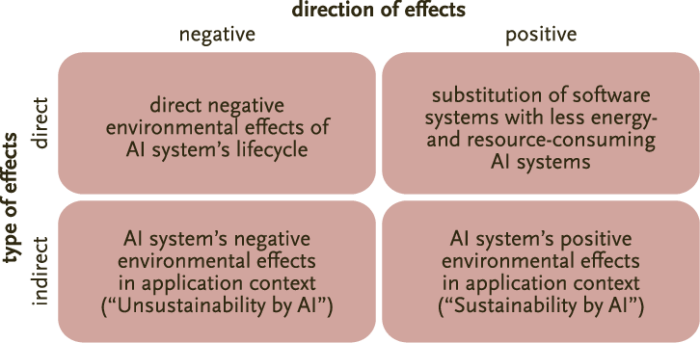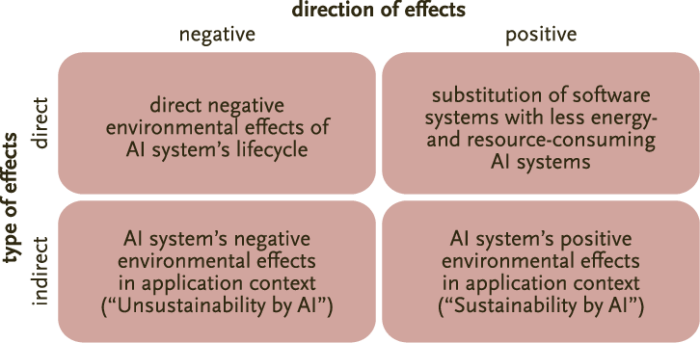Risks ai follow the money – Risks AI: Follow the Money – The rapid advancement of artificial intelligence (AI) is driven by massive investments, but where this money flows has profound implications for the future of AI and society. From venture capital pouring into promising startups to government grants fueling research, the financial landscape of AI development is complex and raises critical ethical questions.
The allure of AI’s potential is undeniable, with promises of revolutionizing industries and solving global challenges. However, the pursuit of profit and technological dominance can create blind spots, leading to biased algorithms, privacy violations, and job displacement. As we delve into the financial incentives driving AI development, it’s crucial to understand the potential risks and ensure that AI benefits humanity as a whole.
The Financial Landscape of AI Development

The development of artificial intelligence (AI) is fueled by significant financial investments from various sources. These investments are crucial for driving innovation, pushing the boundaries of AI research, and translating breakthroughs into real-world applications. Understanding the financial landscape of AI development is essential to grasp the forces shaping the future of this transformative technology.
Venture Capital and Private Equity
Venture capital (VC) firms and private equity (PE) investors play a vital role in funding early-stage AI startups. These firms provide capital to promising companies with the potential to disrupt industries with their AI-powered solutions. VC investments in AI have grown exponentially in recent years, reflecting the increasing confidence in the sector’s growth prospects.
For example, in 2022, global VC investment in AI reached a record high of over $100 billion.
Government Grants and Public Funding
Governments around the world recognize the strategic importance of AI and have allocated substantial resources to support AI research and development. Government grants and public funding programs aim to advance AI research, develop national AI talent pools, and foster the adoption of AI in various sectors.
The US government, for instance, has launched initiatives like the National AI Initiative and the American AI Initiative to accelerate AI research and innovation.
Corporate Investments
Large technology companies are actively investing in AI research and development, both internally and through strategic acquisitions. These companies recognize the potential of AI to enhance their existing products and services, develop new revenue streams, and gain a competitive edge.
For example, Google, Amazon, Microsoft, and Facebook have all made significant investments in AI research, acquiring AI startups and developing their own AI platforms.
Role of Large Technology Companies
Large technology companies play a significant role in driving AI innovation. They possess vast resources, access to massive datasets, and expertise in developing and deploying AI systems. These companies have the ability to scale AI research and development efforts, leading to rapid advancements in areas such as natural language processing, computer vision, and machine learning.
Obtain direct knowledge about the efficiency of eu rules ai must protect human rights through case studies.
They also have strong financial incentives to invest in AI, as it can enhance their core businesses, create new revenue opportunities, and improve their competitive position.
Impact of Investment Trends on AI Research
Investment trends significantly influence the direction and priorities of AI research. As investors seek higher returns, AI research is increasingly focused on areas with commercial potential, such as healthcare, finance, and autonomous vehicles. This trend can lead to a concentration of research efforts in specific areas, while other areas of AI research may receive less attention.
Additionally, investors’ preferences for specific AI technologies can influence the development of AI tools and applications. For example, the surge in interest in deep learning has led to significant advancements in this field, while other AI approaches may receive less funding.
Ethical Considerations in AI Funding

The pursuit of artificial intelligence (AI) is fueled by substantial financial investments, driving rapid advancements in algorithms and applications. However, this financial landscape raises crucial ethical considerations, demanding a careful examination of the potential risks and responsible development practices. As AI technologies permeate various aspects of society, ensuring ethical and equitable development is paramount to harnessing its transformative potential.
Potential Ethical Risks Associated with AI Development Driven by Financial Interests
The pursuit of profit can sometimes overshadow ethical considerations in AI development. The focus on financial returns may lead to the development of AI systems that prioritize profit over ethical implications. This can manifest in various forms, including bias in algorithms, privacy violations, and job displacement.
- Bias in Algorithms:AI algorithms are trained on vast datasets, which may contain biases reflecting societal prejudices. If these biases are not addressed, they can be amplified and perpetuated by AI systems, leading to discriminatory outcomes. For example, algorithms used in hiring processes might inadvertently favor certain demographic groups, perpetuating existing inequalities.
- Privacy Violations:The collection and analysis of personal data are essential for AI development, but this can raise concerns about privacy violations. Without robust safeguards, AI systems could be used to track individuals’ movements, monitor their online activity, or even predict their behavior, potentially infringing on their right to privacy.
- Job Displacement:As AI automates tasks previously performed by humans, there is a growing concern about job displacement. While AI can create new opportunities, it is crucial to address the potential economic and social consequences of job losses, ensuring a just transition for workers affected by automation.
The Influence of Funding on AI Applications
The flow of money significantly shapes the landscape of AI development. Funding priorities determine which AI applications receive resources and attention, ultimately influencing their trajectory and impact on society. This section delves into the intricate relationship between funding and AI applications, exploring how financial interests shape the development of specific technologies and the ethical implications of this influence.
Funding Priorities and AI Application Development, Risks ai follow the money
The allocation of funds plays a crucial role in directing the development of specific AI applications. For instance, the significant investment in autonomous vehicle technology has propelled its rapid advancement. Companies like Tesla, Waymo, and Cruise have secured billions of dollars in funding, allowing them to invest in research, development, and infrastructure.
This influx of capital has led to breakthroughs in areas such as sensor technology, machine learning algorithms, and mapping systems.
- Autonomous Vehicles:The substantial investment in autonomous vehicle technology has fueled its rapid advancement. Companies like Tesla, Waymo, and Cruise have secured billions of dollars in funding, enabling them to invest heavily in research, development, and infrastructure. This has led to breakthroughs in sensor technology, machine learning algorithms, and mapping systems.
- Healthcare Diagnostics:AI applications in healthcare diagnostics, such as medical imaging analysis and disease prediction, have attracted significant investment. This funding has enabled the development of sophisticated algorithms capable of detecting subtle patterns and anomalies in medical data, potentially leading to earlier and more accurate diagnoses.
- Financial Trading:The financial sector has embraced AI for high-frequency trading, risk management, and fraud detection. Investment banks and hedge funds have poured resources into developing AI algorithms that can analyze vast amounts of financial data in real-time, enabling faster and more informed trading decisions.
Ethical Implications of AI Applications Driven by Different Financial Interests
The ethical implications of AI applications are heavily influenced by the financial interests driving their development. Different funding sources may prioritize different values, potentially leading to divergent outcomes.
- Profit-Driven Development:When funding is primarily driven by profit motives, there is a risk that AI applications might be developed with a focus on maximizing financial returns rather than promoting societal well-being. This could lead to the development of AI systems that exacerbate existing inequalities or prioritize short-term gains over long-term sustainability.
For example, AI algorithms used in hiring might inadvertently perpetuate bias against certain demographic groups if they are trained on data that reflects existing societal inequalities.
- Socially Responsible Development:Conversely, AI development funded by organizations with a strong social mission may prioritize ethical considerations and long-term societal benefits. For example, non-profit organizations or government agencies might invest in AI applications that aim to address pressing social issues such as poverty, climate change, or healthcare access.
Potential for Short-Term Financial Gains Over Long-Term Societal Benefits
The pursuit of short-term financial gains can sometimes overshadow the potential long-term societal benefits of AI development. This can lead to a focus on developing AI applications that generate immediate profits, even if they might have unintended negative consequences in the long run.
For example, the development of AI-powered surveillance systems might be driven by the potential for increased security and efficiency, but it could also raise concerns about privacy violations and the erosion of civil liberties.
The Future of AI Funding and Its Impact: Risks Ai Follow The Money
The landscape of AI funding is evolving rapidly, driven by advancements in AI technology, growing adoption across industries, and the increasing recognition of its potential to revolutionize society. The future of AI funding is likely to be shaped by a combination of emerging trends, including the rise of new funding models, increased government regulation, and the growing focus on responsible AI development.
The Emergence of New Funding Models
The traditional venture capital model, while still dominant, is being complemented by new funding models that cater to the specific needs of AI development. These new models are designed to address the challenges associated with AI development, such as the high costs of research and development, the long timelines for achieving commercial viability, and the need for specialized expertise.
- Corporate Venture Capital (CVC):Large corporations are increasingly investing in AI startups through their CVC arms, seeking to gain access to cutting-edge technologies and strategic partnerships. Examples include Google’s GV, Amazon’s Alexa Fund, and Microsoft’s M12.
- Crowdfunding:Platforms like Kickstarter and Indiegogo have enabled AI startups to raise funds from a large number of individuals, often through pre-orders or equity-based crowdfunding. This approach allows for broader public participation in AI development.
- Government Grants:Governments around the world are recognizing the strategic importance of AI and are providing grants and subsidies to support research and development in key areas, such as healthcare, education, and national security. Examples include the US National Science Foundation’s AI Institute program and the European Union’s Horizon Europe program.
- Public-Private Partnerships:Collaboration between governments, universities, and private companies is becoming increasingly common, enabling the pooling of resources and expertise to address complex AI challenges. Examples include the Partnership on AI, a non-profit organization that promotes the responsible development and use of AI.





